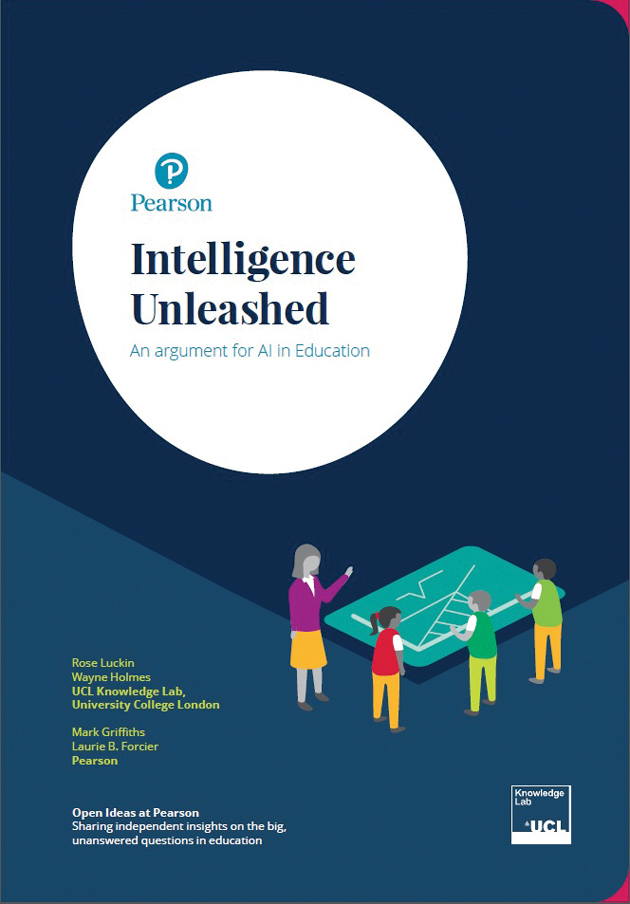Rose Luckin, professor of learner centred design at the UCL Knowledge Lab, University College London
What are you working on at the moment?
The publication is a description of what artificial intelligence (AI) in education is and what it can do. It puts forward an argument for why it needs to be taken into account more within education.
Why should it?
Because AI can do a lot to help us with future problems. It is grounded in evidence from research that has been conducted over the past 25 years from a whole range of people involved in AI in education.
What is interesting about this research?
This is the only report that has been written for a non-academic audience. It talks about what AI in education is.

What are AI systems?
AI uses various techniques to build dynamic computational models of a subject that has to be learned, a dynamic model of the learner and their progress in very fine grades. It’s not just whether a learner got something right or not but what steps they took. It is about building a computational model of the teaching process. There are three core models: how you teach, what you have to learn and how the learners are getting on.
Research shows that AI enables learners and teachers to add to their understanding and knowledge using smart machines. That might take the form of an adaptive piece of software that can provide individualised one-to-one tutoring for learners and there is a good body of evidence to support the fact that these tools are effective.
What do you hope the impact of this research will be?
We would like to raise awareness and to start a dialogue about how educators understand how artificial intelligence might best be used in education because it is important they drive this innovation. There is no question about it: artificial intelligence is here and it is not going to go away. Big companies are investing a lot of money in developing AI solutions and it is really important that we start a discussion now about what we want AI to do for education that we don’t end up having it imposed on teachers and learners and parent.
What do the findings show?
The key findings are that artificial intelligence systems can support teaching and learning effectively. They can help us to bridge the attainment gap between the less able and more able learners within an organisation, a classroom. They could help teachers by assisting them to deal with the wide range of pupil abilities that they have to deal with within the classroom.
Is there any other research that you would recommend?
The other research that I suggest are videos from Dr Rand Hindi and myself where we talk about what artificial intelligence really is and what it isn’t and what we mean by “AI in Education”.
They can be found at: www.pearson.com/innovation/smarter-digital-tools.html
Also, an earlier report from 2011, “What is AIED and why does education need it?” by Joshua Underwood and myself.












Your thoughts